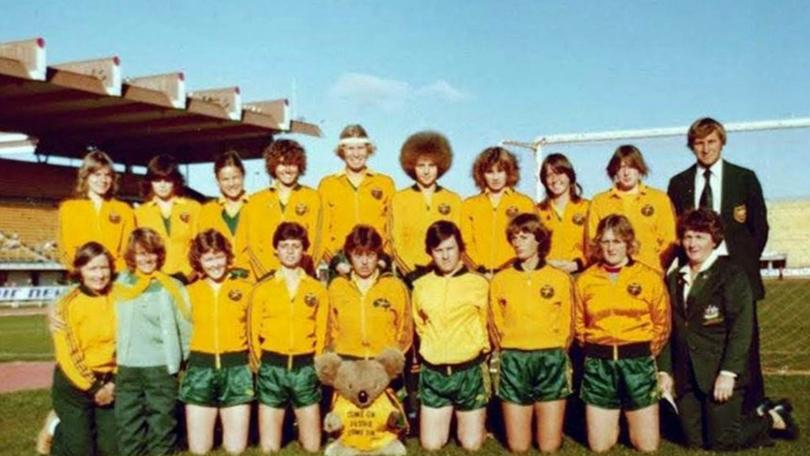Australian football has its own History Wars as new team recognised as First Matildas
The Matildas are facing their own version of History Wars thanks to a shock announcement.

An internal rift in Australian football history has been reopened in what is meant to be an attempt to heal it, with Football Australia announcing the “historic” recognition of the 1975 team as the true “First Matildas”.
The title of Australia’s first national women’s football team had been disputed for several years between two different sides: one that played an international tournament in Hong Kong in 1975, and one three years later that played a tournament in the 1978 Women’s World Invitational Tour in Taiwan.
The friction over the 1975 side being the First Matildas came down to the side being almost entirely composed of St. George Budapest players bar two, and not being the result of an official national selection process.
Sign up to The Nightly's newsletters.
Get the first look at the digital newspaper, curated daily stories and breaking headlines delivered to your inbox.
By continuing you agree to our Terms and Privacy Policy.Now, Football Australia has deepened the fracture in its attempt to bury the hatchet over the recognition of the First Matildas.
Thanks to an expert panel including members of FIFA, the International Centre for Sports Studies, and several football historians, the now “true” First Matildas are the sixteen women who went to Hong Kong in 1975, alongside coach Joe O’Connor.
“After careful assessment, it was determined that the 1975 team met all necessary criteria. The team played against recognised national teams, wore the green and gold with the Australian Coat of Arms emblem, and comprised players who were eligible to represent Australia at the international level,” a statement from Football Australia reads.
FA Chairman Anter Isaac said the decision is part of the governing body’s ambition to preserve and celebrate the game’s history.
“The 1975 team’s achievements laid the foundation for the development and success of women’s football in our country, and it is our honour to formally acknowledge their contributions.”
This rewriting of history sees Julie Dolan — whose name adorns the award for the A-League Women’s best player — lose her claim as the first Matildas captain, with Pat O’Connor now the first women’s captain.
The new First Matildas captain O’Connor was delighted over their new recognition, saying it’s a moment of “immense pride” for the 1975 squad.
“I am deeply honoured and thrilled by Football Australia’s decision to recognise our 1975 team with ‘A’ International caps. This acknowledgment and recognition as the “First Matildas” not only celebrates our efforts and dedication but also cements our place in Australian football history as the pioneers of the women’s game.
“It is a moment of immense pride for all of us, and I am grateful for the recognition of our contributions to the sport we love.”
But in true Australian football fashion, this move will likely only split people further into camps and factions.
Rewriting the history of the country’s favourite national team – for better or worse, correct or incorrect – is a decision that cannot and has not been made lightly. Whether you’re a 1975er or a 1978er, this is another landmark move by Football Australia to recognise and remember the forgotten and thrown-away parts of Australian football history.
The First Matildas:
1. Pat O’CONNOR – Captain
2. Christel ABENTHUM
3. Sue BINNS
4. Kim COATES
5. Julie DOLAN
6. Lynn EVERETT MILLER
7. Trudy FISCHER
8. Cindy HEYDON
9. Vickie KOHEN
10. Sue LARSEN
11. Lynn MCKENZIE (GK)
12. Aunty Tarita Yvonne PETERS (Stacey Tracy)
13. Connie SELBY
14. Trixie TAGG
15. Sue TAYLOR (GK)
16. Gundega (Gundy) ZARINS
Coach – Joe O’CONNOR

